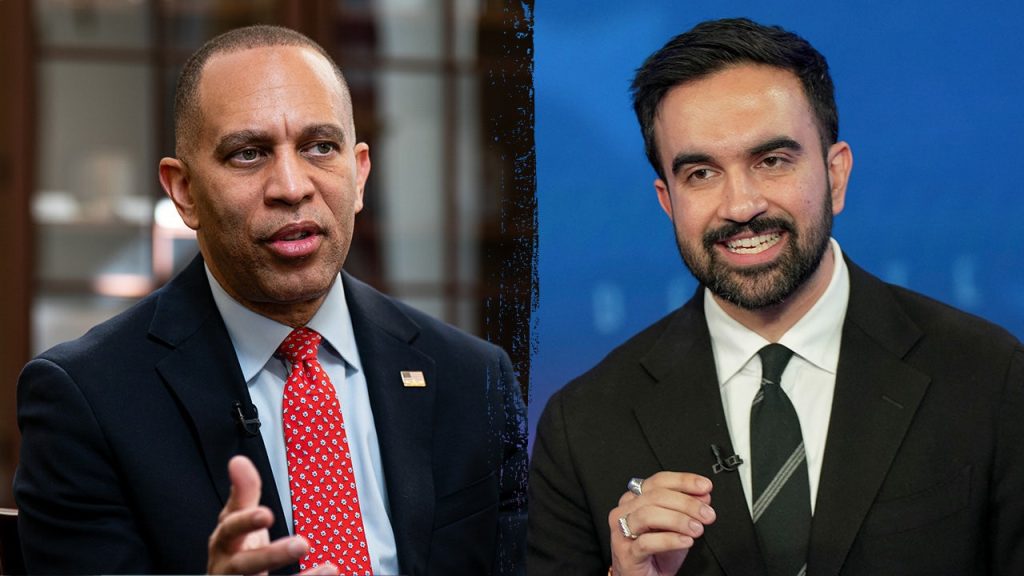Navigating American Political Currents: A Snapshot of Today’s Most Pressing Issues
As America approaches another consequential election season, the political landscape continues to evolve with remarkable speed. In New York City, a mayoral race heats up while national politicians navigate government shutdowns, border policies, and international relations. Behind these headlines are real people whose lives are directly impacted by the decisions made in corridors of power from city halls to the White House.
The New York City mayoral race exemplifies the tensions within the Democratic Party as Hakeem Jeffries, House Minority Leader, finally endorsed Zohran Mamdani, a 33-year-old democratic socialist state lawmaker from Queens. The endorsement came after four months of delay, highlighting the careful political calculations at play even within the same party. Mamdani, who has focused his campaign on addressing the city’s affordability crisis, has faced criticism from former Governor Andrew Cuomo for what Mamdani describes as “Islamophobic rhetoric.” The young candidate has laughed off suggestions that his proposed tax increases would drive New Yorkers away from the city, demonstrating the confidence of a new generation of progressive politicians who believe higher taxes on the wealthy can fund needed social programs without economic exodus. As Election Day approaches, this race serves as a microcosm of broader Democratic Party tensions between its progressive and moderate wings.
On the national stage, the Trump administration continues to make waves with policy announcements and controversial plans. A beef import initiative has drawn criticism for allegedly missing the root causes of challenges facing American cattle ranchers, while a mysterious ally reportedly donated $130 million to cover military paychecks during the ongoing government shutdown. The administration has also been engaged in a war of words with former First Lady Hillary Clinton over allegations of White House furniture theft, contrasting with Trump’s plans to construct a ballroom at the White House that Chelsea Clinton condemned as showing “disregard for history.” These controversies reflect the deep polarization that continues to define American politics, with even White House furnishings becoming battlegrounds for partisan attacks. Meanwhile, an intriguing revelation about ongoing cooperation with Qatar on an Idaho training facility shows how international relationships transcend individual administrations, continuing from Trump through Biden.
The international dimension of American politics remains critical, with South Korean officials suggesting that former President Trump and North Korean leader Kim Jong Un should make “a bold decision” to meet during Trump’s upcoming Asia trip. This development underscores how personal relationships between leaders can sometimes transcend traditional diplomatic channels, potentially opening doors to progress on seemingly intractable issues like North Korean nuclear development. It also highlights how foreign governments strategically cultivate relationships with American political figures who may return to power, creating complex international dynamics that span electoral cycles and administration changes.
In Congress, the government shutdown continues with House Speaker Mike Johnson shutting down the chamber to pressure Senate Majority Leader Chuck Schumer, as the standstill approaches the one-month mark. This parliamentary maneuvering has real-world consequences for government employees, contractors, and citizens who depend on government services. Meanwhile, Senator Bernie Sanders demonstrated his independent streak by praising Trump’s border policies while criticizing Biden’s approach, stating unequivocally that “you’ve got to have borders, period.” This unexpected alignment between Sanders and Trump on immigration reflects how traditional political divides can sometimes break down on specific issues, complicating the usual partisan narratives. The tensions within Congress have occasionally turned personal, with reports of a Democratic staffer threatening to “put a knot” on a Republican lawmaker’s head, leading to a protection order being granted.
Across America, local politics continue to shape communities and reflect national trends. In New Jersey, Democrats are reportedly lagging in their outreach efforts, potentially endangering their prospects in a crucial upcoming election according to warnings from DNC leadership. Democratic officials have been urged to “stop siding with illegal aliens” following an incident where an activist allegedly rammed federal agents in a sanctuary city, highlighting how immigration remains a wedge issue capable of mobilizing voters on both sides. In New York, Republican challengers claim that Attorney General Letitia James is “wreaking havoc” in ways voters may not fully appreciate. These local contests matter tremendously, determining how national policies are implemented and how resources are allocated to address community needs. They remind us that while national politics may dominate headlines, local elections often have the most immediate impact on citizens’ daily lives.
As America continues to navigate these turbulent political waters, the fundamental questions remain the same: How do we balance competing interests in a diverse society? How do we maintain democratic norms amid fierce partisan competition? And how do we ensure that government serves the people rather than narrow interests? The answers to these questions will emerge not just from Washington or state capitals, but from countless conversations in homes, workplaces, and community centers across the country. While the politicians and policies may change, the democratic project continues, dependent as always on an engaged citizenry willing to look beyond partisan talking points to find common ground and practical solutions to shared challenges.













